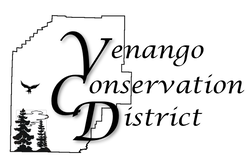ContactIf you are a teacher in Venango County and are interested in enrolling your classroom in the Trout in the Classroom program, please contact our environmental education coordinator. We will direct you to the appropriate contacts to help you with funding, equipment, and educational opportunities. Bailey Kozalla Environmental Education Coordinator (814) 676-2832 ext. 2 [email protected] |
Trout in the Classroom Program
Made possible by a unique partnership between the Pennsylvania Council of Trout Unlimited (PATU) and the Pennsylvania Fish and Boat Commission (PFBC), Pennsylvania Trout In the Classroom (PA TIC) is an interdisciplinary environmental education program in which students (grades K-12) learn about current and past impacts, management, and protection and enhancement opportunities of Pennsylvania's watersheds and coldwater resources, while raising trout in the classroom. Throughout the year, students are introduced to the importance of watershed conservation efforts, ecosystems, habitats, natural resources, and management strategies to protect and enhance coldwater resources. They are also introduced to recreational opportunities in which they can enjoy those resources and to the coldwater fish species that call those waters home.
Each TIC program is unique and has applications in environment and ecology, science, mathematics, social studies, language and fine arts, and physical education, while students explore myriad topics like trout life cycles, aquatic adaptations, water resource conservation, and watersheds. All classrooms end the year by releasing their trout into a “Stocked Trout Waterway,” a state-approved stream near the school or within a nearby watershed. Retrieved from Pennsylvania Trout in the Classroom website. |
Release Day Field Trips

